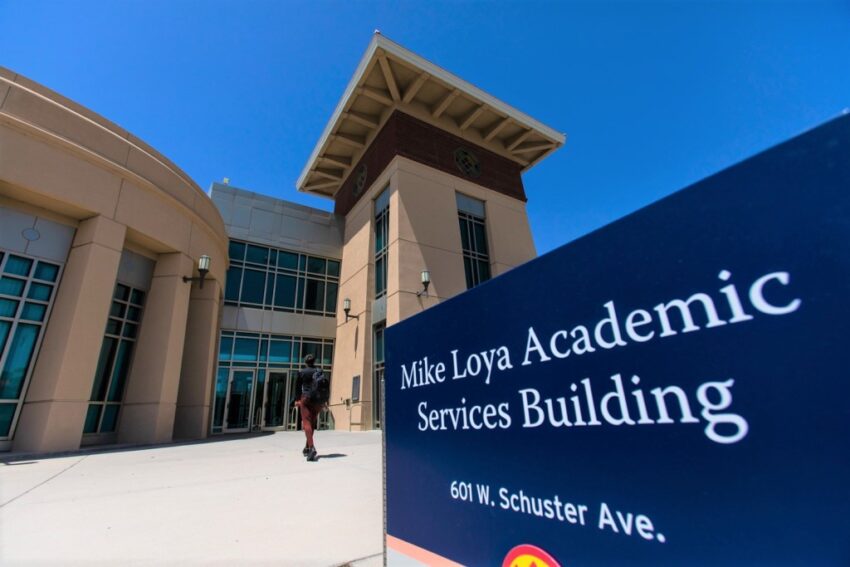
Tens of thousands of undocumented college students who live in Texas are uncertain about their academic future after the state’s recent decision to revoke in-state tuition, which could make higher education too expensive for them.
Leaders of El Paso’s three main public colleges and universities in statements said that their institutions will do what they can within the law to help their students, but may not have a plan until the situation becomes clearer.
The state rescinded its Dream Act on June 4 after the U.S. Department of Justice sued Texas, stating that the law discriminated against U.S. citizens who could not benefit from lower tuition rates. The Texas Office of the Attorney General asked to invalidate the law, which a district court judge did in a matter of hours.
Lawyers for MALDEF, a Latino civil rights organization, filed a motion Wednesday in the U.S. District Court, Northern District of Texas, Wichita Falls Division, on behalf of Students for Affordable Tuition to join a lawsuit against the revocation. The Justice Department and the Texas Attorney General’s office opposed the motion.
Access to in-state tuition, in place since June 16, 2001, has led to a stronger state, said Gaby Pacheco, president and CEO of TheDream.US, the nation’s largest college and career success program for undocumented immigrant students.
“Harming Texas Dreamers’ abilities to access higher education and put their degrees to work for the state and our nation is self-defeating, harmful both to these students’ futures but also the future of Texas,” Pacheco said in a statement.
The Development, Relief, and Education for Alien Minors (Dream) Act was passed with bipartisan support and signed into law by Texas Gov. Rick Perry 24 years ago. It was the first state to pass such a law. Twenty-three states and the District of Columbia still offer in-state tuition to undocumented college students, according to the Higher Ed Immigration Portal.
Representatives from Texas Tech Health El Paso, El Paso Community College and the University of Texas at El Paso declined interview requests and instead sent prepared statements.
TTHEP wrote that the institution was helping students understand their financial options for the upcoming academic year.
Keri Moe, associate vice president for External Relations Communications and Development at EPCC, said that the college will comply with state and federal laws that determine who can receive in-state tuition. The college estimated earlier this year that fewer than 250 of its students were undocumented.

Non-resident tuition and fees at EPCC would be $5,304 for a full-time, 12-credit-hour load per academic year, according to the college’s website. By comparison, resident tuition and fees would be $3,264.
“We have reached out to students who may be impacted about the new tuition rates,” Moe said in a statement.
UTEP President Heather Wilson told university students in a June 6 email that the institution’s legal, enrollment and financial aid personnel would keep track of this evolving situation, and provide them with an update once more is known.
In the meantime, Wilson encouraged students with tuition concerns to contact UTEP’s Division of Enrollment Management. A university spokeswoman said that it is possible that fewer than 200 of its students could be affected by the revocation.
UTEP tuition depends on which college the student selects. For example, in-state tuition for an undergraduate in the College of Liberal Arts, one of the least expensive colleges, would pay $5,685.60 for the 2025-26 academic year. The out-of-state student would have to pay $18,060. Both would have to pay an additional $1,378 in mandatory fees.
“Rest assured, UTEP will explore all options to minimize or mitigate potential disruption to your studies here,” Wilson said in a statement.
The recent revocation happened after Texas legislators failed again this session to pass a bill to end the state’s Dream Act. However, the legislation did advance to the Senate from the House of Representatives for the first time in a decade.
The act allowed undocumented college students, mostly from the Deferred Action for Childhood Arrivals program, to pay in-state tuition at a public institution if they had lived in the state for three years, graduated from a Texas high school and sign an affidavit that they plan to apply for permanent residency in the United States as soon as eligible.
The law has withstood legal challenges in the past to include a 2023 case that involved the University of North Texas. The case was dismissed on procedural grounds, but the Fifth U.S. Circuit Court of Appeals ruled that the act could face a valid challenge.
Perry has said this law allowed undocumented residents to become productive members of society. In a 2015 Texas Tribune article, Perry said his support was based on economics.
“Are you going to put these people in a position of having to rely upon the government to take care of themselves, or are you going to let them be educated and be contributing members of society, obviously working towards their citizenship,” Perry said.
Perry could not be reached for comment for this story.
Since its launch, thousands of undocumented Texans have pursued higher education degrees to achieve economic mobility as teachers, nurses, engineers and employees at Fortune 500 companies.
Recent estimates by the Higher Ed Immigration Portal, a digital platform that merges data, policies and resources about undocumented students to back immigration reform and federal policy at the state and campus levels, estimated up to 73,000 undocumented students in the state.
Texas Sen. César Blanco, D-El Paso, is among the voices that said this court decision would hurt the students and weaken the state.
“Experts say it could cost our state over $400 million in lost economic output,” Blanco said in a statement. “That’s fewer graduates, fewer skilled workers, and more pressure on public services.”
The post Status of Texas’ in-state tuition leaves El Paso colleges, students off balance appeared first on El Paso Matters.
 Read: Read More
Read: Read More




